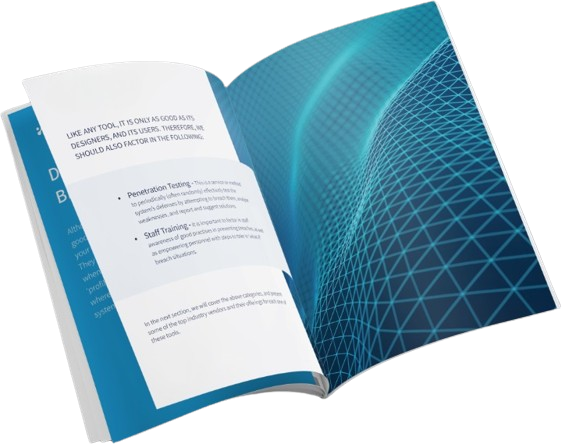Did you know that securing unsecured business loans can be a challenging task for many entrepreneurs? Understanding the intricacies of the process is crucial for your success.
By implementing the right strategies, you can increase your chances of approval and secure the financing you need to grow your business. From improving your credit score to building strong relationships with lenders, each tip plays a vital role in your loan application.
Stay tuned to discover the remaining essential tips that will guide you through the loan securing journey.
Key Takeaways
- Prepare thorough financial projections and assessments to determine the appropriate loan amount.
- Explore diverse lender options, including alternative sources, for specialized loan programs.
- Maintain transparency with lenders through clear financial information and a solid business plan.
- Seek professional guidance, monitor credit reports, and prioritize financial stability for successful loan acquisition.
Understand Your Credit Score
To secure unsecured business loans successfully, the first step is to thoroughly comprehend your credit score. Improving your credit is crucial in obtaining favorable loan terms. Start by obtaining a copy of your credit report from major credit bureaus. Review it carefully to identify any errors or areas that need improvement. Understanding the factors that influence your credit score, such as payment history, credit utilization, length of credit history, new credit accounts, and types of credit, is essential. By enhancing your financial literacy and grasping these components, you can take proactive steps to boost your creditworthiness.
Financial literacy plays a significant role in managing your credit score effectively. Educate yourself on responsible financial practices, such as making timely payments, maintaining low credit card balances, and avoiding unnecessary credit inquiries. Develop a budget to ensure you can meet your financial obligations promptly. Consider consulting with a financial advisor to gain insights into optimizing your credit score. By demonstrating a strong understanding of your credit score and implementing strategies to enhance it, you signal to lenders that you’re a reliable borrower deserving of an unsecured business loan. Strengthening your financial knowledge empowers you to navigate the borrowing process confidently and secure the financing needed for your business endeavors.
Determine Loan Amount Needed
Determining the precise amount of loan necessary for your business operations is a critical step in securing the right financing solution. To ensure you calculate the loan amount needed effectively, follow these key steps:
- Calculate Repayment: Begin by evaluating your current financial situation and forecasting your future cash flows. Consider how much you can realistically afford to repay each month while keeping your business profitable. Use online loan calculators to estimate monthly payments based on different loan amounts and interest rates.
- Assess Risk Profile: Understand the risks associated with borrowing different amounts. A larger loan may provide more capital for expansion but also carries higher monthly payments and interest costs. Consider your business’s stability, growth potential, and industry trends to determine the level of risk you’re comfortable with.
- Align Loan Amount with Business Needs: Take a detailed look at your business plan and identify the specific areas where additional funding is required. Whether it’s for purchasing equipment, hiring staff, or expanding marketing efforts, ensure that the loan amount aligns with your business goals and objectives. Avoid borrowing more than necessary to prevent unnecessary financial strain.
Prepare a Solid Business Plan
When preparing a solid business plan for securing unsecured business loans, ensure you have clear financial projections that demonstrate your company’s growth potential.
Detailing operational strategies is crucial as it shows lenders how you plan to manage day-to-day activities and achieve your financial goals.
Clear Financial Projections
Crafting a solid business plan with clear financial projections is essential for securing unsecured business loans. When preparing your financial projections, ensure you conduct a thorough cash flow analysis to demonstrate how money moves in and out of your business.
Additionally, perform a detailed risk assessment to identify potential challenges and showcase how you plan to mitigate them. Here are three key elements to focus on when developing your financial projections:
- Revenue Forecast: Provide realistic estimates of your future income streams.
- Expense Breakdown: Clearly outline all anticipated costs and expenses.
- Profit Margin Analysis: Demonstrate how your business will generate profits and sustain growth.
Detailed Operational Strategies
To ensure the success of your business plan, developing detailed operational strategies is crucial. Start by conducting a thorough risk assessment to identify potential challenges and outline contingency plans. This will demonstrate to lenders that you have a clear understanding of the market and are prepared to mitigate any risks that may arise.
Additionally, when outlining your funding options, consider all possible sources of financing, such as traditional bank loans, investors, or crowdfunding platforms. By presenting a comprehensive overview of how you plan to operate and grow your business, you’ll instill confidence in potential lenders and investors.
Gather Financial Documents
Ensure you have gathered all the necessary financial documents for your unsecured business loan application. This step is crucial in demonstrating your financial stability and preparedness to potential lenders. Here are three key items you should include in your financial document collection:
- Financial Statements: Prepare detailed financial statements, including your balance sheet, income statement, and cash flow statement. These documents provide a comprehensive overview of your business’s financial health and performance. Ensure they’re up-to-date and accurately reflect your current financial standing.
- Tax Returns: Gather your business tax returns for the past few years. Lenders often require this information to assess your tax compliance and evaluate your income consistency. Make sure your tax returns are organized and filed correctly to streamline the loan application process.
- Bank Statements: Provide your business’s recent bank statements to show your cash flow patterns, account balances, and financial behavior. Lenders use this information to gauge your repayment ability and financial habits. Keep your bank statements organized and readily accessible for a smooth loan application experience.
Build a Strong Relationship With Lenders
Developing a robust rapport with potential lenders is fundamental in securing unsecured business loans successfully. To achieve this, honing your communication skills is paramount. Effective communication involves clearly articulating your business plan, financial needs, and how you plan to utilize the loan. Be concise, yet thorough, in your explanations to convey professionalism and competence. Respond promptly to any queries or requests for additional information, demonstrating your responsiveness and commitment.
Trust building is another crucial aspect of fostering a strong relationship with lenders. Transparency is key; be honest about your financial situation, business performance, and any challenges you may be facing. Providing accurate information builds credibility and shows that you’re a reliable borrower. Additionally, follow through on commitments and keep lenders informed of any changes or developments in your business.
Regularly updating your lenders on your progress and milestones can also help strengthen the relationship. This shows that you value their partnership and are proactive in keeping them informed. Remember, the goal is to establish a relationship built on trust and mutual respect, which can lead to a smoother loan approval process and potentially better terms. By focusing on communication skills and trust building, you can enhance your chances of securing the unsecured business loan you need.
Explore Alternative Lenders
When considering unsecured business loans, exploring alternative lenders opens up a world of diverse options beyond traditional banks. Non-traditional financing sources such as online lenders, peer-to-peer platforms, or community development financial institutions can offer unique opportunities for securing the funding you need.
Additionally, specialized loan programs tailored to specific industries or business needs may present viable alternatives worth exploring.
Diverse Lender Options
To broaden your search for funding, consider exploring various alternative lenders who may provide unsecured business loans tailored to your specific needs. Here are some key points to keep in mind when looking into diverse lender options:
- Loan Comparison: Compare interest rates, repayment terms, and additional fees across different lenders to find the best fit for your business.
- Lender Qualifications: Understand the eligibility criteria and requirements set by each lender to ensure you meet their qualifications before applying.
- Flexibility: Alternative lenders often offer more flexibility in terms of credit scores and collateral requirements, making them a viable option for businesses that may not qualify for traditional bank loans.
Non-Traditional Financing Sources
Exploring alternative lenders can provide a variety of non-traditional financing sources for businesses seeking unsecured loans tailored to their specific requirements.
Crowdfunding campaigns offer a way for businesses to raise capital by collecting small amounts of money from a large number of people, usually online. This method allows for broader outreach and potential customer engagement.
Peer to peer lending opportunities involve borrowing from individuals or groups without going through a traditional financial institution. These platforms match borrowers with investors willing to lend money in exchange for a return on their investment.
It’s essential to research and compare different alternative lending options to find the best fit for your business needs and financial goals.
Specialized Loan Programs
Considering specialized loan programs offered by alternative lenders can provide tailored financing solutions for businesses seeking unsecured funds to meet their specific financial needs. When exploring alternative lenders, keep the following key points in mind:
- Loan Eligibility
Alternative lenders often have more flexible eligibility criteria compared to traditional banks, allowing businesses with less-than-perfect credit scores or shorter business histories to qualify for loans.
- Loan Terms
Specialized loan programs may offer more customizable terms, such as longer repayment periods or variable interest rates, to better suit your business’s financial situation.
- Personalized Support
Alternative lenders often provide personalized support throughout the loan application process, offering guidance and assistance to help you secure the right financing for your business.
Consider Collateral Options
When contemplating collateral options for securing unsecured business loans, it’s crucial to assess the value and liquidity of the assets being considered. Different collateral options carry varying degrees of risk and can significantly impact the terms of your loan. Conducting a thorough risk assessment is essential to determine the suitability of the collateral and its potential impact on your loan security.
Collateral options range from real estate and equipment to inventory and accounts receivable. Each type of collateral comes with its own set of valuation challenges and risks. Real estate, for example, may offer stability and higher valuation but can be illiquid in times of financial distress. On the other hand, equipment and inventory may be more liquid but could depreciate rapidly, affecting their valuation. Accounts receivable, while representing future income, can be volatile and subject to default risks.
When considering collateral options, it’s vital to understand how each asset will be valued by the lender. Collateral valuation plays a crucial role in determining the amount of the loan and the interest rate offered. Lenders often require professional appraisals to assess the value of the collateral accurately. By carefully evaluating collateral options and their implications, you can make informed decisions to secure your unsecured business loan efficiently.
Review Loan Terms Carefully
When considering unsecured business loans, it’s crucial that you thoroughly review the loan terms provided. Understanding the interest rates and assessing the repayment flexibility are key aspects to focus on.
This careful examination will ensure that you’re fully aware of the financial obligations and benefits associated with the loan.
Understand Interest Rates
Before finalizing any business loan agreement, carefully scrutinize the interest rates and thoroughly review all loan terms to ensure complete understanding. Understanding interest rates is crucial for making informed financial decisions.
Here are three key points to consider:
- Interest Rate Comparisons: Compare the interest rates offered by different lenders to ensure you’re getting the best deal possible.
- Loan Term Negotiations: Don’t hesitate to negotiate the loan terms, including interest rates, to find a solution that works best for your business.
- Payment Schedule: Understand the payment schedule to make sure it aligns with your cash flow. Adjust your budget accordingly to accommodate the repayment structure.
Assess Repayment Flexibility
To fully understand the repayment flexibility of your business loan, meticulously review the loan terms for any clauses related to adjustments and modifications. Negotiate terms that allow for changes in repayment schedules or amounts based on your business’s financial fluctuations.
Evaluating risks associated with repayment flexibility is crucial to ensure you can meet the obligations without straining your cash flow. Look for options like interest-only periods, grace periods, or the ability to make extra payments without penalties.
Assess how the lender handles modifications to the repayment structure and any associated fees. By carefully examining these details, you can choose a loan that offers the right balance between flexibility and stability for your business’s financial needs.
Improve Cash Flow Management
Improving cash flow management is essential for the financial stability and growth of your business. By implementing effective strategies, you can ensure that your business operates smoothly and has the necessary funds to meet its obligations.
Here are three key ways to enhance your cash flow management:
- Cash Flow Analysis: Conduct a thorough analysis of your cash flow to understand the flow of money in and out of your business. Identify patterns, peak periods, and potential bottlenecks that could impact your cash reserves. Utilize tools like cash flow statements to track your inflows and outflows accurately.
- Financial Forecasting: Develop detailed financial forecasts to predict your future cash flow needs. By forecasting your income and expenses, you can anticipate cash surpluses or shortfalls and make informed decisions to mitigate any financial risks. Regularly review and update your forecasts to adapt to changing market conditions.
- Streamline Accounts Receivable and Payable: Efficiently manage your accounts receivable by invoicing promptly and following up on overdue payments. Similarly, optimize your accounts payable by negotiating favorable terms with suppliers and paying bills strategically to maximize cash on hand.
Assess Repayment Capacity
Enhancing your cash flow management through a thorough analysis and strategic financial forecasting sets the foundation for evaluating your business’s repayment capacity. Assessing your repayment capacity requires a deep dive into your budget analysis to understand your current financial commitments and obligations. This evaluation is crucial for lenders to determine if your business has the ability to repay the loan without compromising its operations.
To assess your repayment capacity effectively, it’s essential to evaluate the risk associated with taking on additional debt. By conducting a comprehensive risk assessment, you can identify potential challenges that may impact your ability to meet repayment deadlines. Understanding these risks allows you to develop contingency plans and mitigation strategies to ensure timely repayments.
Furthermore, a detailed budget analysis will provide insights into your business’s cash inflows and outflows, helping you determine the amount of revenue available for loan repayment. By scrutinizing your budget, you can identify areas where cost-cutting measures may be implemented to free up additional funds for loan servicing.
Utilize Professional Assistance
Consider engaging professional financial advisors to assist in navigating the complexities of securing unsecured business loans effectively. Financial advisors and loan brokers can provide valuable insights and guidance throughout the loan application process. Here are three key reasons why utilizing professional assistance can be beneficial:
- Expertise: Financial advisors and loan brokers have specialized knowledge in the field of business finance. They can help you understand the intricacies of unsecured loans, assess your financial situation, and recommend suitable loan options tailored to your business needs. Their expertise can be instrumental in securing the best loan terms and conditions.
- Networking: Professional financial advisors and loan brokers often have extensive networks within the financial industry. Leveraging their connections can open up opportunities to access a wider range of lenders who offer unsecured business loans. This network can increase your chances of finding a lender that aligns with your requirements and preferences.
- Time and Effort Savings: Securing an unsecured business loan can be a time-consuming and labor-intensive process. By enlisting the help of financial advisors or loan brokers, you can streamline the application process and expedite the search for suitable loan options. This can save you valuable time and effort, allowing you to focus on other aspects of your business.
Monitor Credit Report Regularly
To ensure a comprehensive approach to securing unsecured business loans, it’s crucial to regularly monitor your credit report for any changes or discrepancies. Credit monitoring benefits you by providing insights into your financial behavior, helping you identify errors or potential fraud that could negatively impact your creditworthiness. By staying vigilant, you can address issues promptly and maintain a healthy credit profile.
Regularly checking your credit report also contributes to credit report accuracy. Monitoring allows you to spot inaccuracies, such as incorrect personal information, unauthorized accounts, or errors in payment history. Ensuring the information on your credit report is precise is vital, as lenders rely on this data to assess your credit risk when considering your loan application. Any discrepancies found should be reported and corrected promptly to prevent them from affecting your credit score.
Be Transparent and Honest
Maintaining transparency and honesty throughout the loan application process is crucial for establishing trust with lenders and enhancing your credibility as a borrower. When you’re open about your financial situation and forthcoming with information, you build a positive relationship with the lender right from the start.
Here are three key points highlighting the significance of transparency and honesty in securing unsecured business loans:
- Transparency Benefits: Being transparent about your business operations, financial history, and the purpose of the loan demonstrates integrity. Lenders appreciate applicants who openly share relevant details as it shows a willingness to work collaboratively and mitigates the risk of hidden issues surfacing later on.
- Honesty Importance: Honesty is the foundation of any successful loan application. Providing accurate information about your financial standing, including debts, revenue, and expenses, allows lenders to assess risk accurately. Even if your financial situation is less than ideal, honesty can help you work with the lender to find viable solutions.
- Building Trust: Transparency and honesty go hand in hand in building trust. By being truthful about your financial status and intentions, you show integrity and reliability. Trust is a critical factor for lenders when evaluating loan applications, and being transparent can significantly improve your chances of securing the funding you need.
Frequently Asked Questions
How Can I Negotiate for a Lower Interest Rate on an Unsecured Business Loan?
When negotiating for a lower interest rate on an unsecured business loan, focus on showcasing your strong credit history and financial stability. Emphasize your ability to meet repayment terms promptly.
Understand the loan application process thoroughly and be prepared to discuss how you plan to utilize the funds. Lenders often consider these factors when determining interest rates.
Clear communication and demonstrating a solid repayment plan can help you secure a favorable rate.
What Are Some Common Mistakes to Avoid When Applying for Unsecured Business Loans?
When applying for unsecured business loans, avoid common mistakes that could hinder loan approval. Underwriting looks at your financial projections and documentation closely. Missing or inaccurate information can lead to rejection.
Ensure all paperwork is complete and accurate to increase your chances of approval. Double-check everything to present a strong case for your loan application. Stay organized and thorough to navigate the underwriting process successfully.
What Impact Does My Personal Credit History Have on My Ability to Secure an Unsecured Business Loan?
Your personal credit history significantly impacts your eligibility for unsecured business loans. Lenders use it to assess your creditworthiness and determine the risk of lending to you.
Improving your credit score by making timely payments and reducing debt can enhance your chances of securing a loan. A strong credit history demonstrates financial responsibility and reliability, increasing your appeal to lenders for unsecured financing.
Are There Any Specific Industries or Types of Businesses That Are More Likely to Be Approved for Unsecured Business Loans?
In certain industries, like technology and healthcare, approval rates for unsecured business loans tend to be higher due to their growth potential and stability. Lenders often consider credit criteria and loan terms when evaluating applications from these sectors.
Understanding industry trends can help you position your business more favorably to secure an unsecured loan. It’s crucial to showcase your business’s strengths and potential for success to increase your chances of approval.
How Can I Protect My Business Assets if I Default on an Unsecured Business Loan?
To protect your business assets if you default on an unsecured business loan, consider strategies like setting up a separate legal entity for your business, obtaining business insurance, or structuring your business as a limited liability company (LLC).
These options can help shield your personal assets from being seized in case of default. Additionally, explore collateral options or risk management techniques to mitigate the consequences of default and safeguard your assets.
Final Thoughts
Securing unsecured business loans may seem like a daunting task, but with the right approach and preparation, it can be achievable. By following these 13 key tips, you can increase your chances of obtaining the funding your business needs to succeed. Remember, being proactive and diligent in your efforts will greatly improve your chances of securing the loan you desire. So, don’t be afraid to take the necessary steps to secure your financial future.



